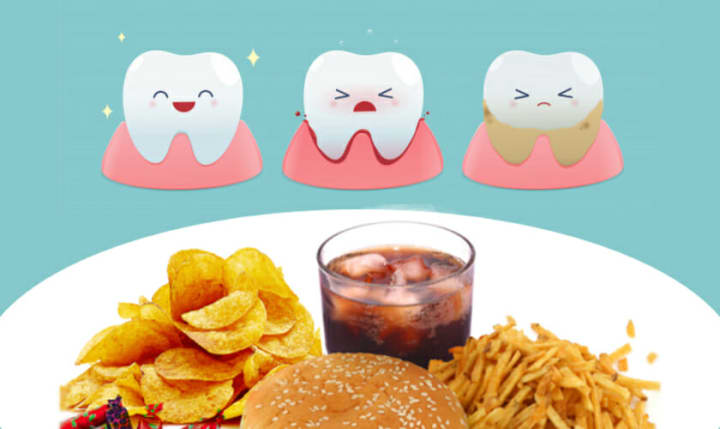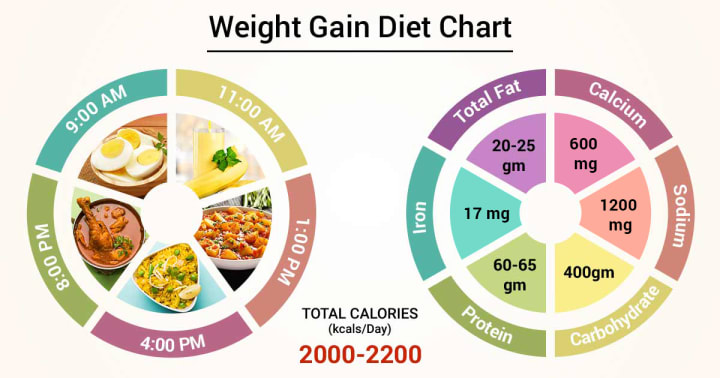How junk food effects our health
And it's effect on our body

Title: The Truth About Junk Food: How It Affects Your Health
Junk food is delicious and convenient, but it can have serious negative effects on your health. Eating too much of it can lead to a host of health problems, from weight gain and dental issues to heart disease and diabetes. In this post, we'll explore the effects of junk food on human health and what you can do to minimize the damage.
What is Junk Food?
Junk food is defined as any food that is high in calories, sugar, fat, or salt but low in nutritional value. Examples include fast food, candy, chips, and soda. These foods are often heavily processed and contain artificial additives and preservatives.
Weight Gain and Obesity
One of the most well-known effects of junk food is weight gain and obesity. Junk food is often high in calories and low in fiber, which can make you feel hungry again soon after eating. Over time, this can lead to overeating and weight gain. Obesity is a serious health problem that can increase your risk of heart disease, diabetes, and other chronic conditions.
Heart Disease

Junk food can also increase your risk of heart disease. Many junk foods are high in saturated and trans fats, which can raise your cholesterol levels and increase your risk of heart disease. Additionally, a diet high in salt can lead to high blood pressure, which is also a risk factor for heart disease.
Diabetes
Eating too much junk food can also increase your risk of developing diabetes. Junk food is often high in sugar, which can cause spikes in blood sugar levels. Over time, this can lead to insulin resistance and type 2 diabetes.
Dental Problems

Junk food can also damage your teeth. Sugary and acidic foods can erode tooth enamel and cause cavities. Additionally, chewing on sticky candy or gum can damage dental work, such as fillings or braces.
What You Can Do
While it's okay to indulge in junk food every once in a while, it's important to make healthy choices the majority of the time. Here are some tips for minimizing the negative effects of junk food on your health:
Choose healthier alternatives: Instead of reaching for chips or candy, try snacking on fruits or vegetables. Opt for whole grain versions of your favorite snacks, such as whole grain crackers instead of regular crackers.
Read labels: Pay attention to the ingredients and nutrition information on food labels. Look for foods that are low in sugar, saturated and trans fats, and salt.
Limit portion sizes: If you do decide to indulge in junk food, be mindful of how much you're eating. Limit your portions to a small amount and avoid eating junk food as a meal replacement.
Practice moderation: Moderation is key when it comes to junk food. Enjoy it in small amounts and don't make it a regular part of your diet.
Conclusion
Junk food may be tempting, but it's important to remember the negative effects it can have on your health. By making healthier choices and practicing moderation, you can enjoy the occasional treat without putting your health at risk. Remember, your body is your temple, so take care of it by fueling it with healthy foods.
Weight gain: Junk food is high in calories, fat, and sugar, and often lacks essential nutrients. Consuming too much junk food can lead to weight gain, which in turn can increase the risk of obesity, diabetes, heart disease, and other health problems.its solution

Increased risk of chronic diseases: Junk food is typically high in saturated and trans fats, which can increase levels of LDL cholesterol and lead to the buildup of plaque in the arteries. This can increase the risk of heart disease and stroke. Junk food is also high in sugar, which can contribute to the development of type 2 diabetes, as well as other chronic diseases such as cancer.
Negative impact on mental health: Eating a diet high in junk food can also have a negative impact on mental health. Studies have found that a diet high in processed and fast food is associated with an increased risk of depression, anxiety, and other mental health problems. Additionally, consuming excessive amounts of sugar and caffeine can lead to irritability, restlessness, and difficulty sleeping
About the Creator
Enjoyed the story? Support the Creator.
Subscribe for free to receive all their stories in your feed. You could also pledge your support or give them a one-off tip, letting them know you appreciate their work.





Comments
There are no comments for this story
Be the first to respond and start the conversation.